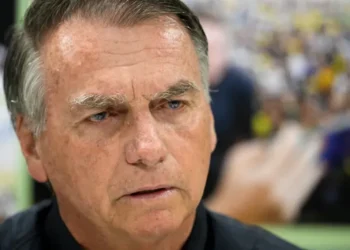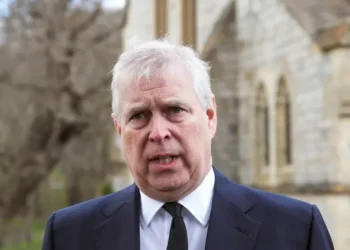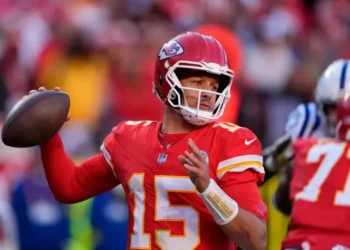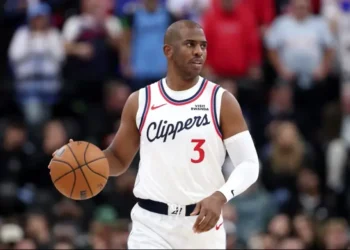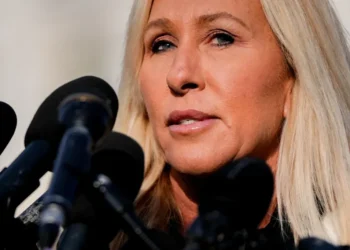NEW YORK — Paul Tagliabue, the former National Football League commissioner who presided over an era of immense growth, stability, and transformation for American football, died Sunday at his home in Chevy Chase, Maryland. He was 84.
According to NFL spokesman Brian McCarthy, Tagliabue’s family informed the league that he died of heart failure. He had been battling Parkinson’s disease in recent years.
Tagliabue led the NFL from 1989 to 2006, succeeding Pete Rozelle and setting the stage for unprecedented financial expansion, record television deals, and decades of labor peace. He was inducted into the Pro Football Hall of Fame in 2020 as part of the NFL’s centennial class.
A Steward of the Modern NFL
Current Commissioner Roger Goodell, who succeeded Tagliabue in 2006, paid tribute to his predecessor, calling him “the ultimate steward of the game.”
“Tall in stature, humble in presence, and decisive in his loyalty to the NFL,” Goodell said in a statement. “I am forever grateful and proud to have Paul as my friend and mentor. He helped shape me as an executive, but also as a man, husband, and father.”
Moments of silence were held before several NFL games on Sunday in honor of Tagliabue and Dallas Cowboys defensive tackle Marshawn Kneeland, who died last week.
During his 17-year tenure, Tagliabue oversaw the construction of numerous state-of-the-art stadiums, the negotiation of billion-dollar television contracts, and a period of remarkable labor stability — with no strikes or lockouts.
Expansion, Labor Peace, and the Rooney Rule
Under Tagliabue’s leadership, the NFL expanded to new markets while maintaining competitive balance. The league saw the return of professional football to Cleveland after the Browns’ relocation and the eventual restoration of two teams to Los Angeles after their departure in the 1990s.
He also introduced one of the league’s most influential diversity measures: the “Rooney Rule.” The policy required every team with a head coaching vacancy to interview at least one minority candidate — a groundbreaking step later expanded to include senior front-office and league executive positions.
When Tagliabue took office in 1989, the league had only one Black head coach in the modern era. By the time he stepped down, seven minority coaches had led NFL teams.
He also implemented what was widely considered the strongest substance-abuse policy in major professional sports, reflecting his belief in integrity and accountability both on and off the field.
Decisive Leadership in Crisis
Tagliabue’s tenure was defined by his calm, measured leadership — never more so than after the September 11, 2001 terrorist attacks. He made the historic decision to cancel all NFL games scheduled for the following weekend, prioritizing national mourning and safety.
It was one of the few times he was publicly compared favorably to Rozelle, who had controversially allowed games to proceed after President John F. Kennedy’s assassination in 1963 — a decision Rozelle later called one of his greatest regrets.
Controversy Over Concussions
Despite his many achievements, Tagliabue’s legacy has been complicated by criticism that he failed to take stronger action on concussions — an issue that has continued to haunt the league.
In a 2017 interview, he apologized for comments he made in 1994 dismissing concussions as a “pack-journalism issue.” Tagliabue later acknowledged the remarks were misguided and that he lacked sufficient data at the time.
“My language was intemperate, and it led to a serious misunderstanding,” he said. “There was a need for better data and more reliable information about concussions.”
Though concussion research lagged during his tenure, Tagliabue’s focus on labor relations and revenue growth left an enduring imprint on the modern NFL.
A Legacy of Cooperation and Respect
One of Tagliabue’s earliest and most consequential decisions was to build a direct working relationship with NFL Players Association Executive Director Gene Upshaw.
Unlike his predecessors, Tagliabue personally led all labor negotiations, sidelining the management council that had long handled talks with the union. The move was instrumental in achieving long-term labor stability.
“Paul had insisted that final control over labor and business matters rest in the commissioner’s office,” said Joe Browne, a longtime NFL executive who worked closely with both Rozelle and Tagliabue. “That was a large step forward toward the tremendous rebound and expansion we had in the 1990s and beyond.”
Upshaw often described their approach as one based on compromise and mutual respect. Though some union members criticized the NFLPA for being too accommodating, the period of peace enabled unprecedented league-wide prosperity.
From the Courtroom to the Commissioner’s Office
Before joining the NFL, Tagliabue was a respected Washington attorney at Covington & Burling, where he managed the league’s legal affairs. A 1962 Georgetown University graduate and basketball team captain, Tagliabue earned his law degree from New York University and later served in the U.S. Defense Department.
At 6 feet 5 inches tall, he was a commanding presence, but colleagues often described him as private and analytical rather than charismatic — a contrast to the media-savvy Rozelle.
He was selected commissioner in 1989 after a contentious selection process that divided the league’s owners. Tagliabue ultimately united both factions and presided over an era of expansion, stadium construction, and lucrative media partnerships that transformed the NFL into a global sports powerhouse.
A Personal Touch Amid Tragedy
Those who worked closely with Tagliabue recall his quiet compassion, particularly in times of loss. Following the September 11 attacks, he personally attended Mass with Ed Tighe, an NFL lawyer whose wife was killed in the tragedy — a gesture that left a lasting impression across the league.
Hall of Fame player and coach Art Shell, the first modern-era Black head coach, remembered Tagliabue as a pragmatic and forward-thinking leader.
“His philosophy on almost every issue was, ‘If it’s broke, fix it — and if it’s not broke, fix it anyway,’” Shell said. “He never lost sight of his responsibility to do what was right for the game.”
A Lasting Influence on the NFL
Paul John Tagliabue was born on November 24, 1940, in Jersey City, New Jersey. His leadership helped steer professional football through a period of global recognition, economic dominance, and structural reform.
While debates about his handling of player safety continue, few dispute that Tagliabue’s vision and diplomacy laid the groundwork for the NFL’s rise into one of the world’s most successful sports enterprises.
He is survived by his family, who have asked for privacy as tributes pour in from across the sports community.
This article was rewritten by JournosNews.com based on verified reporting from trusted sources. The content has been independently reviewed, fact-checked, and edited for accuracy, neutrality, tone, and global readability in accordance with Google News and AdSense standards.
All opinions, quotes, or statements from contributors, experts, or sourced organizations do not necessarily reflect the views of JournosNews.com. JournosNews.com maintains full editorial independence from any external funders, sponsors, or organizations.
Stay informed with JournosNews.com — your trusted source for verified global reporting and in-depth analysis. Follow us on Google News, BlueSky, and X for real-time updates.


